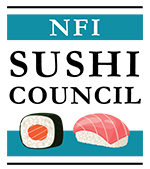More Fears About Poor Reporting From the Washington Post
April 21, 2014
Laurie McGinley
Health, Environment & Science Editor
Washington Post
Dear Ms. McGinley,
I am writing to express concern over some fundamental journalistic failings found in Daryl Fears recent article Seafood study: Up to 32 percent imported to U.S. is caught illegally. Mr. Fears article contains no reporting or even information gathering from the commercial enterprise that is the focus of the study on which he is reporting. Mr. Fears appears to have written an article about an issue that concerns the commercial seafood industry and never once contacted the commercial seafood industry.
In fact, beyond simply not reaching out to commercial seafood interests, Mr. Fears is presumptuous enough to speak for the industry; The seafood industry, which stands to lose money if it loses the publics trust, frowns on such reports. Had he contacted the industry he would have found that it does in fact frown on this report because of serious problems with the study that do no hold up to the scientific rigor he so eagerly reports on.
The National Fisheries Institute (NFI) supports and has taken action to help crackdown against pirate fishing, including supporting legislation to combat the issue. But we cannot support the validity of a study that begins by proposing that 10-20% of domestic seafood comes from Illegal, Unreported and Unregulated (IUU) fishing. To independent scientists schooled in regulatory oversight and fisheries management this statistic is absurd. Yet its referenced in the first few paragraphs of the study. Nowhere does Mr. Fears challenge or even acknowledge this.
Likewise, the study suggests that nearly 100% of the salmon exported from China to the United States was of Russian origin. This is beyond mere anecdotal speculation and is just completely inaccurate. Whats more the percentage of salmon from China that is deemed IUU, appears to ignore the realistic source of as much as half of that product. Unsubstantiated speculation and anonymous, anecdotalmusings contribute to grave flaws in this study and they are never even examined by Mr. Fears.
The authors seemed to have talked to a lot of anonymous sources about the industry yet widely available, not so anonymous pricing data undercuts their own arguments. For instance, the suggestion that higher-priced Atlantic cod would be labeled as lower-priced haddock or blue whiting to hide its origin is ridiculous. It turns the economic incentive of the suggested piracy upside down. In this scenario unscrupulous fishermen would be scheming to make less money off of their catch. Again, Mr. Fears either does not realize these errors are present in the study or simply chose not to probe these incongruities.
You may remember NFI contacted you in October of 2013 about failures in Mr. Fears reporting on another seafood issue. With this pattern in mind and his clear willingness to ignore stakeholders who are willing to directly challenge aspects of the very subjects he is reporting on we ask that you review his work.
Sincerely,
Gavin Gibbons
Vice President, Communications
National Fisheries Institute
cc: Mr. Kevin Merida
Managing Editor
Washington Post


